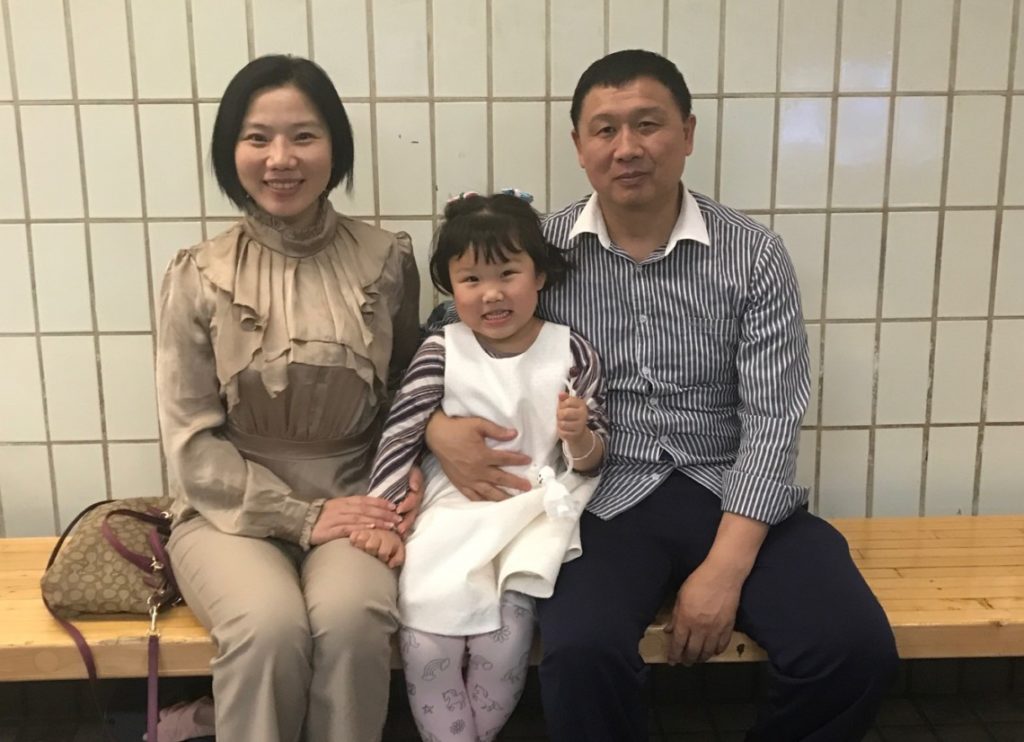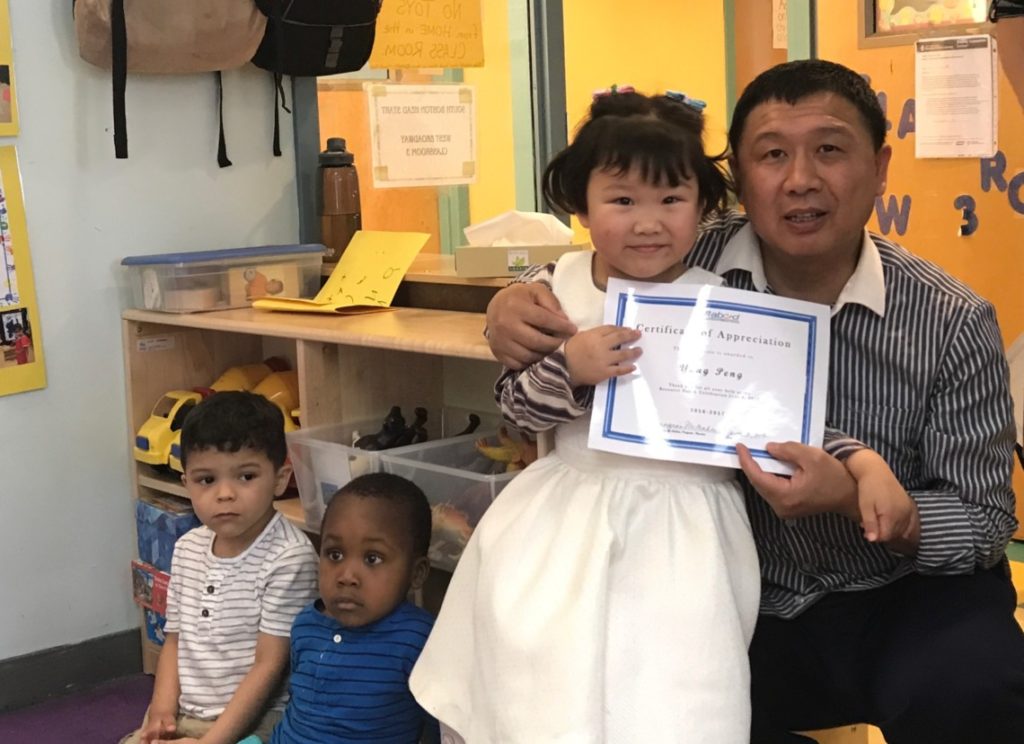
Parenting Journey Gives Immigrant Moms “Head Start”
When Min Ren and her husband moved to Boston from China two years ago, their three-year-old daughter, Rosie, didn’t know any English. Rosie became shy and easily overwhelmed. Min understandably felt overwhelmed, too. They were living in Cambridge, close to Min’s work as a visiting scholar at Harvard University. When they moved to Dorchester, Min enrolled Rosie in Head Start, an early childhood education program for low-income families, where a staff member noticed the family’s difficulty. “She said, we have this program if you don’t feel so good, if you’re stuck in something,” Min recalls. She joined Parenting Journey, a twelve-week reflective and experiential program for parents.
Head Start provides comprehensive development services for low income children from birth to age five, and that includes supporting their parents. Boston’s Head Start programs have implemented Parenting Journey curriculum at their locations since 2014, and a number of their staff have been trained as facilitators for a population that speaks English, Cantonese, Mandarin, Spanish, Haitian Creole, Portuguese, and other languages. They run sixteen programs in a year with ongoing support from the Parenting Journey headquarters in Somerville. “No two parents in our program are alike,” says Kate Pace, Family and Community Engagement Coordinator at Action for Boston Community Development (ABCD) Head Start & Children’s Services. “It’s a very diverse group, and Parenting Journey really is applicable and universal to all the parents.”
For Head Start’s clientele, living in poverty exacerbates the challenges of parenting. “A lot of the children and our families have all faced a wide-variety of trauma: community violence, interpersonal violence. We also have many families who are new immigrants to our community, so they are facing a variety of issues that come with uprooting your life somewhere and creating it somewhere else,” Kate says. They come to Parenting Journey for a safe space to consider how they were parented, how they parent, and what goals they have for their families.
Min faced particular challenges as an immigrant parenting in the United States, but says that the program’s most profound message was “I’m not so unique.” “Everyone has problems,” she says. Listening to the stories of other parents in her group made her feel less alone. “The group is like a friend,” Min says.
Min needed friends to remind her to be a friend to herself amidst the difficulties of parenting in the United States. Min struggled with a “culture of criticism” internalized from her childhood in China. “When we grow up we are always criticized by adults,” she says. “I do one bad thing, then I feel bad about myself, which only even makes these things worse. Reasonably I know I need to see from a positive angle, but in a criticizing environment, how can you do that?” With the support of her Parenting Journey group, Min shared her secrets and came to terms with her experiences. “Secrets always correlate with our difficulties, and this group gave me a platform to share my stories,” she says. “When I share, in the meantime, I reflect on myself.”
Kate considers the group component central to the success of the Parenting Journey program, noting a group of parents who have graduated from Head Start, but still meet together regularly “to just talk about their experiences as parents, share secrets, and socialize.” She calls it a transformation. “A lot of our families are socially isolated for a wide variety of reasons. They may be new to this country, or work so they don’t have the time to go out and connect with other parents, and I think that one of the best benefits that we see from Parenting Journey is that parents are spending time with other parents,” Kate says. Min seconds her statement. The group becomes a support network, a place where struggling parents can connect and “gain strength,” Min says.
The strength gained from their support equips her to do the hard work of parenting now five-year-old Rosie. “We sit there discussing our problems; but that’s just a starting point,” Min says. After coming to understand herself better as a person and as a mom, Min turned reflection into action, recognizing that her choices made a difference in her daughter’s life. “I am responsible for her…I can never, ever ignore her growth just because I have busy work,” Min says. Evaluating her life three months after Parenting Journey, she says, “I think I’ve gained better balance between my work and my family, and I’m more patient to my girl. And also, I improved the relationship with my husband. [The program] helped me to strengthen my family.”

Head Start sees parents of all kinds who share Min’s goals: to build a better life for her family, and to emerge from difficult situations with more strength. “We’ve had fathers in our group, we’ve had grandparents raising grandchildren, we’ve had first time parents, we’ve had third time parents, parents who speak English, parents who don’t speak English,” Kate says. The diverse experiences come together around what participants have in common: their commitment to the hard work of parenting. Through building community, they build confidence, becoming self-aware, thoughtful, and attentive parents who can support their children in challenging situations. Parenting Journey “helped to heal myself,” Min says. “I am a better myself, a better mom.”
To learn more about how Head Start uses the Parenting Journey I curriculum, watch the video below.
Share

